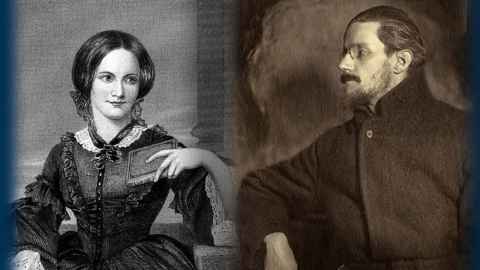Language use across centuries reveals sexual orientation
15 June 2021
A new computational study on 694 classic and contemporary novels suggests that how language is used reflects known psychological differences between men and women.

The findings also showed that, as predicted by cognitive neuroscience, gay male authors used language differently to straight men, in fact being closer to how straight women write, and lesbian women’s writing was slightly shifted towards that of straight men.
Dr Severi Luoto from the University of Auckland used computerised text analysis to dissect the writing styles of men and women of differing sexual orientation in an electronic sample of novels spanning from the beginning of the 19th century to the present day.
He analysed 66.9 million words in all, from novels that were written mainly by British, American and Irish authors.
The sample by heterosexual authors included canonical works such as James Joyce’s Ulysses, Jane Austen’s Sense and Sensibility, and Herman Melville’s Moby Dick, as well as works by contemporary bestselling authors.
The homosexual samples included classics like John Rechy’s City of Night from 1963 and Radclyffe Hall’s The Well of Loneliness from 1928, as well as novels from a large number of contemporary gay and lesbian authors.
In the study Dr Luoto says that compared with straight men, women used more social words, personal pronouns, positive emotion words and words related to sadness and anxiety.
“Heterosexual men, by contrast, used more articles, numbers, spatial words, death and anger-related words, swear words, and words that reflect analytical thinking.”
Dr Luoto says the overall results suggest that previous estimates about the magnitude of sex differences in language use may have been underestimated.
Simply by analysing the frequencies of personal pronouns, articles, and numbers in a given novel (written by a heterosexual author), he says it would be possible to guess the sex of the author with about 72 percent accuracy.
He says the findings largely aligned with known psychological sex differences such as men’s higher systemising cognitive style, higher orientation towards 'things' rather than people, and more pronounced spatial cognitive styles and abilities – as well as women’s more pronounced empathising cognitive style, emotionality, and people orientation.
Fascinatingly, he says gay male authors had a female-typical writing style, characterised by high frequencies of cognitive process words, social words, personal pronouns, verbs, and words related to positive emotions, sadness, and anxiety.
“Like heterosexual women, gay men had lower frequencies of articles, analytical thinking words, spatial words, numbers, and death-related words than heterosexual men. By analysing the frequencies of personal pronouns, articles, and numbers in a given novel by a male author, it would be possible to guess whether they are heterosexual or homosexual with approximately 69 percent accuracy.
“The gender shift hypothesis of homosexuality suggests that homosexual men are feminised while homosexual women are masculinised on certain neuro-behavioural and psychological traits. This hypothesis is generally supported in psychology and cognitive neuroscience, but the current study provides new support for it from literature," he says.
Dr Luoto says the overall results suggest that previous estimates about the magnitude of sex differences in language use may have been underestimated.
“This study introduced stricter controls than previous studies on sex differences in language use, including publication year, authors’ age, authors’ sexual orientation, and domain of writing, with only novels included. With these factors controlled for, the magnitude of sex differences was much larger in this study than has been reported earlier.”
He says the findings on this large corpus of 66.9 million words indicate how psychological group differences based on sex and sexual orientation manifest in language use across two centuries of literature.
“The new findings on sexual orientation make a particularly important contribution to psychology and linguistics,” he says.
Media contact
Julianne Evans | Media adviser
M: 027 562 5868
E: julianne.evans@auckland.ac.nz